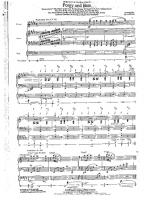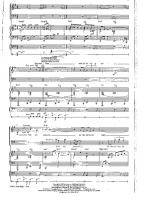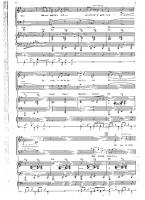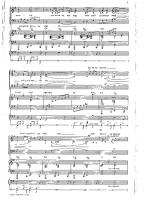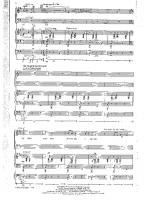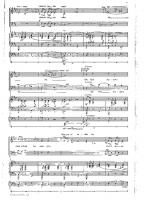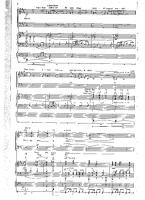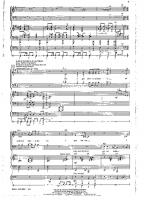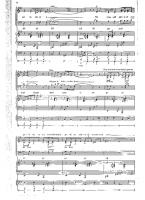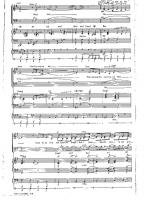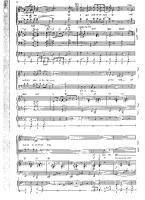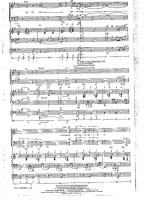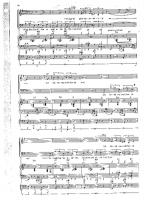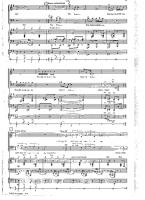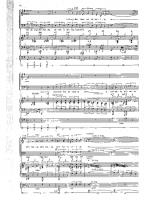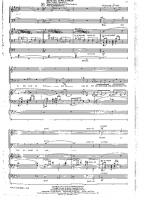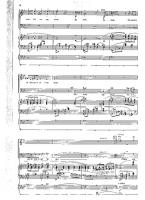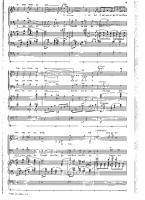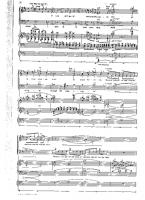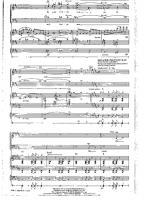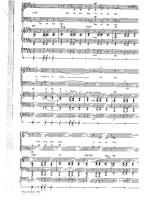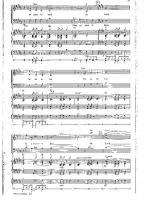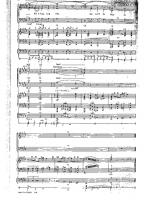Porgy and Bess Sheet Music
Porgy and Bess is an opera, first performed in 1935, with music by George Gershwin, libretto by DuBose Heyward, and lyrics by Ira Gershwin and DuBose Heyward. It was based on DuBose Heyward's novel Porgy and the play of the same name that he co-wrote with his wife Dorothy Heyward. All three works deal with African American life in the fictitious Catfish Row in Charleston, South Carolina, in the early 1920s.
Originally conceived by Gershwin as an "American folk opera," Porgy and Bess premiered in New York in the fall of 1935 and featured an entire cast of classically trained African-American singers—a daring and visionary artistic choice at the time. Incorporating a wealth of blues and jazz idioms into the classical art form of opera, Gershwin considered it his finest work, but it was not widely accepted in the United States as a legitimate opera until 1976 when the Houston Grand Opera production of his complete score (followed nine years later by its Metropolitan Opera premiere) established it as an artistic triumph. The work is now considered part of the standard operatic repertoire and is regularly performed internationally. Despite this success, the opera has been controversial; some, from the outset, have considered it racist.
"Summertime" is by far the best-known piece from the work, and countless interpretations of this and other individual numbers have also been recorded and performed. The opera is admired for Gershwin's innovative synthesis of European orchestral techniques with American jazz and folk music idioms. Porgy and Bess tells the story of Porgy, a crippled black man living in the slums of Charleston, South Carolina, and his attempts to rescue Bess from the clutches of Crown, her pimp, and Sportin' Life, the drug dealer.
Originally conceived by Gershwin as an "American folk opera," Porgy and Bess premiered in New York in the fall of 1935 and featured an entire cast of classically trained African-American singers—a daring and visionary artistic choice at the time. Incorporating a wealth of blues and jazz idioms into the classical art form of opera, Gershwin considered it his finest work, but it was not widely accepted in the United States as a legitimate opera until 1976 when the Houston Grand Opera production of his complete score (followed nine years later by its Metropolitan Opera premiere) established it as an artistic triumph. The work is now considered part of the standard operatic repertoire and is regularly performed internationally. Despite this success, the opera has been controversial; some, from the outset, have considered it racist.
"Summertime" is by far the best-known piece from the work, and countless interpretations of this and other individual numbers have also been recorded and performed. The opera is admired for Gershwin's innovative synthesis of European orchestral techniques with American jazz and folk music idioms. Porgy and Bess tells the story of Porgy, a crippled black man living in the slums of Charleston, South Carolina, and his attempts to rescue Bess from the clutches of Crown, her pimp, and Sportin' Life, the drug dealer.
 Sheet Music Network is a site for those who wants to access popular sheet music easily,
letting them download the sheet music for free for trial purposes.
It's completely free to download and try the listed sheet music, but you have to delete the files after 24 hours of trial.
Don't forget, if you like the piece of music you have just learned playing,
treat the artist with respect, and go buy the original sheet music.
Sheet Music Network is a site for those who wants to access popular sheet music easily,
letting them download the sheet music for free for trial purposes.
It's completely free to download and try the listed sheet music, but you have to delete the files after 24 hours of trial.
Don't forget, if you like the piece of music you have just learned playing,
treat the artist with respect, and go buy the original sheet music.

